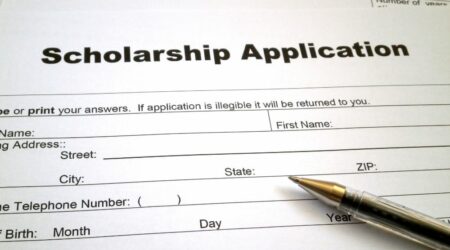How to Write a Winning Essay for Scholarship Application
Winning a scholarship can feel like hitting a jackpot in the game of education – it lightens the financial load and marks you as a standout candidate for future opportunities.
Writing a winning essay for your scholarship application is a crucial step in this process. This essay is your chance to shine, to show who you are beyond grades and test scores.
Here are the top 10 tips to help you craft an essay that can swing the doors of opportunity wide open.
Top 10 Tips on How To Write a Winning Essay To Get That Scholarship
1. Understand the Prompt
First things first, make sure you know what the scholarship committee is asking for. This seems straightforward, but it’s where many applicants trip up.
They rush through this part and miss critical instructions. So, take your time to digest every word of the prompt. It will guide your entire essay.
2. Plan Before You Write
A little planning goes a long way. Outline your main points before diving in.
This will help you stay on topic and ensure your essay has a logical flow from the introduction to the conclusion. Remember, a well-structured essay is easier and more enjoyable to read.
3. Show, Don’t Tell
This is your chance to bring your achievements to life. Instead of stating, “I’m a hard worker,” share a brief story that demonstrates your dedication.
For instance, talk about the time you balanced a part-time job with your studies to fund a project you were passionate about. Stories like these stick in the minds of the scholarship committee.
4. Be Yourself
The committee wants to get to know the real you. So, let your personality shine through your essay.
Write as if you’re having a conversation with a mentor. This approach will make your essay stand out because it feels genuine and engaging.
5. Focus on Your Strengths
While it might be tempting to cover a broad range of accomplishments, focusing on one or two key strengths can have a more powerful impact.
Describe how these strengths have helped you in specific situations, and how they make you a great candidate for the scholarship.
6. Keep It Clear and Concise
Remember, the committee reads hundreds of essays. A clear and concise essay respects their time and keeps their attention.
Avoid filler words and stick to the point. Each sentence should serve a purpose in advancing your overall message.
7. Proofread, Then Proofread Again
Typos and grammatical errors can detract from even the most compelling essays. After finishing your draft, take a break.
Come back with fresh eyes to proofread. Better yet, ask a teacher or friend to review it. They might catch errors you missed.
8. Follow the Formatting Guidelines
If the scholarship specifies formatting requirements (font size, margins, etc.), follow them to the letter. This shows you can follow directions and pay attention to detail.
9. Be Honest
Resist the urge to exaggerate your achievements.
Scholarship committees are good at spotting inconsistencies. Being honest builds trust and shows integrity, qualities that are highly valued.
10. Conclude with Confidence
End your essay on a strong note. Reinforce your main points and express gratitude for the opportunity to apply. A confident conclusion leaves a lasting impression.
Throughout your scholarship application process, remember, that this is more than just an essay. It’s a window into who you are.
A friend once shared how she discussed her experience with community service in her essay, not just as an activity she participated in, but as something that shaped her worldview and career aspirations.
It was this reflection and personal touch that, she believes, helped her stand out and eventually win the scholarship.
With these tips in mind, you’re well-equipped to write an essay that not only meets the criteria but exceeds expectations.
It’s an opportunity to highlight your unique qualities and make a compelling case for why you deserve the scholarship.
Take it seriously, but also enjoy the process of reflecting on your achievements and aspirations.
After you’ve crafted that winning scholarship essay, you might be balancing your academic pursuits with work. We’ve gathered insights and strategies to manage this balance effectively, especially through distance learning programs. Read more on how to balance work and study with distance learning programs to find tips and tricks that can help you navigate this exciting chapter of your life efficiently.










